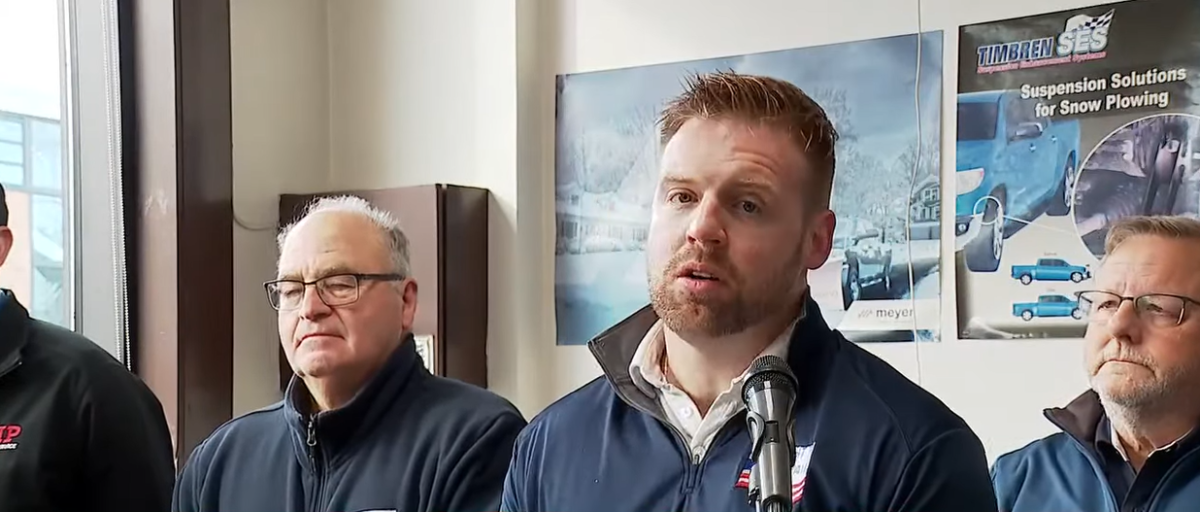Reactions from groups within the automotive industry ranged from disappointment to joy that the Maine Legislature passed right to repair legislation on June 17 striking a key provision that would’ve required OEMs’ telematics data to be housed on a standardized access platform.
The bill is still awaiting Maine Gov. Janet Mills’ signature.
Representatives of independent repair shops and the automotive aftermarket industry castigated the legislation as contradicting the will of Maine voters, 84% of whom passed a ballot measure in November 2023 calling for state implementation of enforceable right to repair regulations.
“I was disappointed that LD 1228 passed,” former O’Reilly Auto Parts general counsel Jeff Groves wrote in an email to Autobody News. “An amendment made by the bill sponsor in committee changed important language supported by 84% of Maine voters in the referendum in November 2023 that was key to consumer choice and access to data.”
Groves, who retired from O’Reilly in 2023, represented aftermarket parts distributors and retailers on the Maine Automotive Right to Repair Working Group, a body overseen by the Maine Attorney General’s office that met on a roughly semimonthly basis between August and February to develop suggestions for final right to repair legislation.
The group included independent repairers, parts distributors, aftermarket manufacturers, auto manufacturers and dealers, and members of the state attorney general’s office, among others.
As amended, the bill introduced by state Democratic Rep. Tiffany Roberts would repeal language in the November 2023 ballot referendum requiring all Maine-sold vehicles to have a standardized data platform allowing car owners and — with owner permission — independent repair shops access to all vehicle mechanical data via mobile application.
Maine Automotive Right to Repair Coalition Director Tommy Hickey, who represented independent repair facilities on the working group, shared Groves’ disappointment that LD 1228 passed without the standardized access platform language.
“We are working every avenue right now to figure out what is next, but I can tell you that we will fight to ensure that there will be a standardized method of getting car owners and consumers their own repair information,” Hickey told Autobody News in an interview. “We're going to have to come up with a plan of attack to make sure that this does not become law. And if it does, how we can get back what 84% of Mainers voted for in 2023?”
As written, the passed legislation states that two years after the bill’s effective date, OEMs on “fair and reasonable terms” must provide the ability for car owners and independent repair facilities to diagnose and repair vehicles that use a telematics system in the same way that OEMs provide their own dealers and designated repair facilities the means to perform diagnostics and repairs on such vehicles.
The legislative language resembles a 2023 Automotive Repair Data/Sharing Commitment between the Automotive Service Association, the Society of Collision Repair Specialists, and the Alliance for Automotive Innovation that called for “fair and reasonable terms” for data sharing to be established in alignment with U.S. Environmental Protection Agency, California Air Resources Board and Massachusetts statutory requirements. Tesla Director of Service Engineering Brian Boggs pushed for similar language to be included in Maine right to repair legislation during the working group’s meetings.
The Alliance for Automotive Innovation circulated a white paper to Maine legislators in support of LD 1228 before its passage. The white paper stated the amended bill is based on a “technologically neutral” data sharing mandate that can be implemented and enforced. The alliance framed the current legislation as the only way to keep car owners’ vehicle data cybersecure.
“By keeping the automaker as the party responsible for delivering the data, it can be managed in a cybersecure way,” the white paper states. “This is the preferred method of federal regulators — if there is ever a problem, they want one clearly responsible party.”
The white paper also framed the ballot referendum as stipulating all vehicle data must be housed directly on vehicles and that all vehicle data will flow “directly from the car to any entity that the consumer authorizes to have the data.” However, the referendum states that vehicle-generated data would be stored in onboard diagnostic systems as well as on a standardized access platform.
Hickey said the bill that surfaced in mid-June reflected the priorities of OEMs while ignoring the will of Maine voters.
“I think the manufacturers have worked with some legislators and teamed up with them to mislead the legislature into believing that an LD 1228 is a ‘small tweak’ to the right to repair ballot initiative,” Hickey said. “I think that's kind of how it was, so I ultimately don't blame the legislature if that's what this was coined as, but it was untrue.”
Finally, Dorman Products Senior Vice President Eric Luftig, who represented aftermarket parts manufacturers on the working group, wrote in an email that he was encouraged Mills hasn’t signed the bill yet.
A spokesperson for Mills’ office didn’t respond to an Autobody News request for an update on the bill’s signature status.
“There’s real concern that LD 1228 does not reflect the will of the voters, or the needs of the aftermarket ecosphere,” Luftig wrote. “We remain committed to advocating for solutions that uphold the will of Maine voters — promoting fair competition, protecting small independent repair shops, and ensuring Mainers have the freedom to choose where they service their vehicles and the parts they use in those repairs.”















Brian Bradley